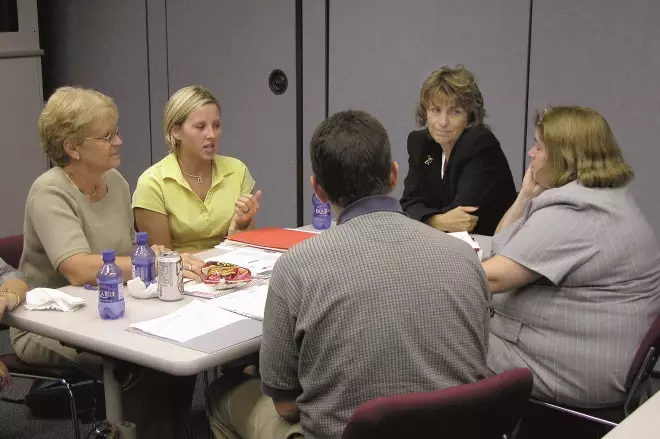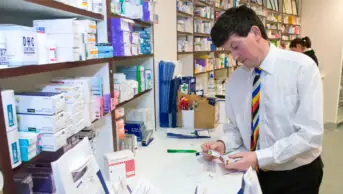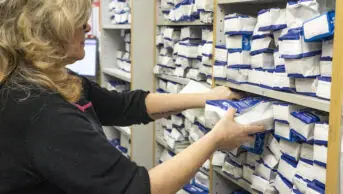
What fears or concerns do pharmacists planning to return to work usually have?
Usually the biggest fear for those returning to practice is that they will have forgotten everything and will not be able to do the job or operate the pharmacy computer system. However, people find their feet quickly and confidence returns once they meet others in a similar situation. Those who have also been off the register, as well as simply not practising, are often overwhelmed by the General Pharmaceutical Council (GPhC) requirements for returning.
What does the GPhC require if a pharmacist leaves the register and then wants to return?
Since 2012, the GPhC requires anyone who intends to return to the pharmaceutical register to prepare a portfolio to demonstrate their professional competence. This portfolio must contain: a full CV; a self-assessment of how their practice meets the standards; an evaluation of how any training, continuing professional development (CPD) or work experience has equipped them to meet the standards; a personal statement; and a personal development plan.
The portfolio must also contain supporting evidence such as certificates of attendance at learning events, testimonials from colleagues, and copies of CPD entries. For those who feel they need advice and support, the Centre for Pharmacy Postgraduate Education (CPPE) runs free ‘Return to the register’ events for those intending to work in England, either face-to-face or online. Participants discuss how they can complete the portfolio based on their own experiences since leaving the register and the preparations they have undertaken towards their return.

Source: Ilene MacDonald / Alamy
The ‘Return to practice’ course gives pharmacy professionals the opportunity to practise their consultation skills and network with others in a similar situation
What does CPPE offer to pharmacy professionals hoping to return to practice?
In England, CPPE runs the only ‘Return to practice’ course over four days, three times a year. This course is heavily subsidised by Health Education England with the aim of ensuring that those who return to work are safe and competent. It covers changes in legislation, the community pharmacy contractual framework, CPD recording, clinical updates and public health. It gives participants the opportunity to practise their consultation skills and network with others in a similar situation.
For those in Wales, the Wales Centre for Pharmacy Professional Education may be able to provide a bursary to cover part of the cost of the CPPE course. NHS Education for Scotland also runs a return to practice course, at a cost of £250 per person.
Those who are returning to practice and who attend the CPPE course are usually intending to return to community pharmacy, although some intend to go back to hospital pharmacy. When people attend the course, they have usually had a career break of 3–5 years. However, many of those returning to hospital pharmacy will have had shorter breaks, for example, a year of planned maternity leave, during which they will have had ‘keeping in touch’ days so they do not tend to come on the course.
What other advice would you give to a pharmacist hoping to return to practice?
The Royal Pharmaceutical Society (RPS) support service provides a wealth of resources for those returning to practice. For example, ‘Medicines, Ethics and Practice’ is a concise and user-friendly guide to the legislation governing medicines supply. The RPS also provides a series of quick reference guides to help you make evidence-based professional decisions.
I would recommend that pharmacists undertake some work shadowing to familiarise themselves with the day to day changes in pharmacy practice, such as NHS repeat dispensing and the electronic prescription service. If you want to undertake locum work in community pharmacy, visit the pharmacy before accepting the booking so that you can meet the staff and become acquainted with the computer system. Remember to ask whether you will be working with any support staff and ask whether you can read through the standard operating procedures beforehand.
Pharmacists can also make themselves more marketable by ensuring that they have passed assessments to demonstrate that they can provide the repeat dispensing service and conduct medicines use reviews (MURs). Once you have passed the MUR assessment, you can also provide the new medicine service.
Finally, build your professional network. Make sure you attend events, such as those organised by RPS local practice forums or the CPPE, so that you can meet other pharmacy professionals in the area. You are more likely to find work through your professional network and you will be able to demonstrate to potential employers that you are committed to your professional development.


